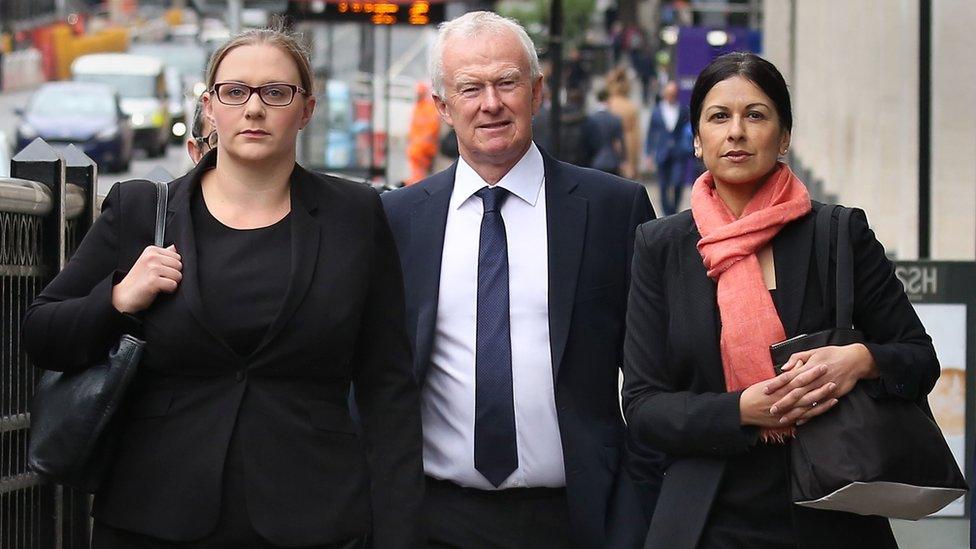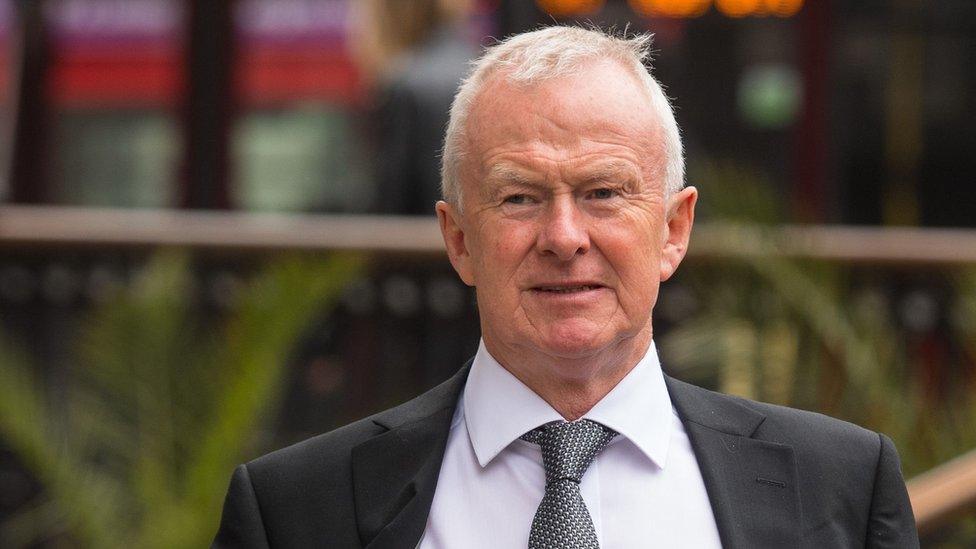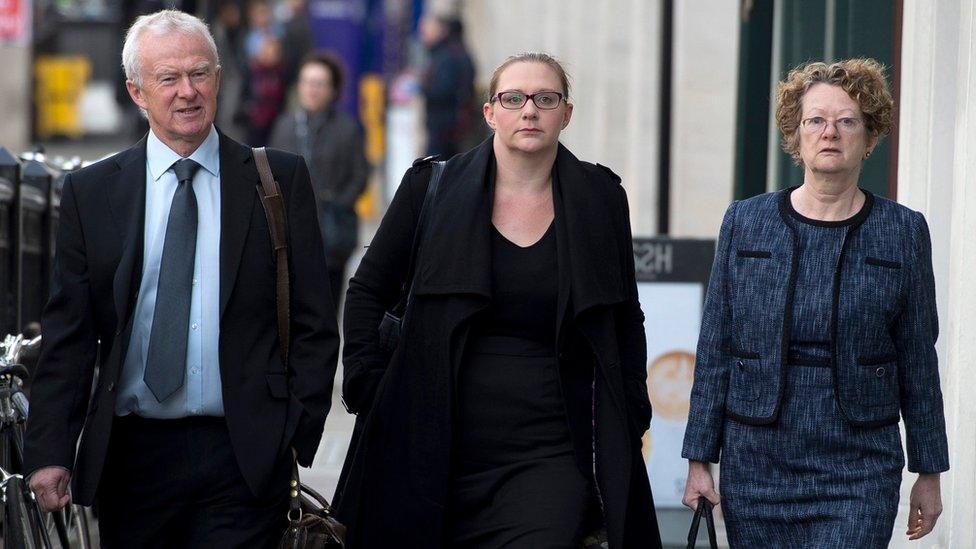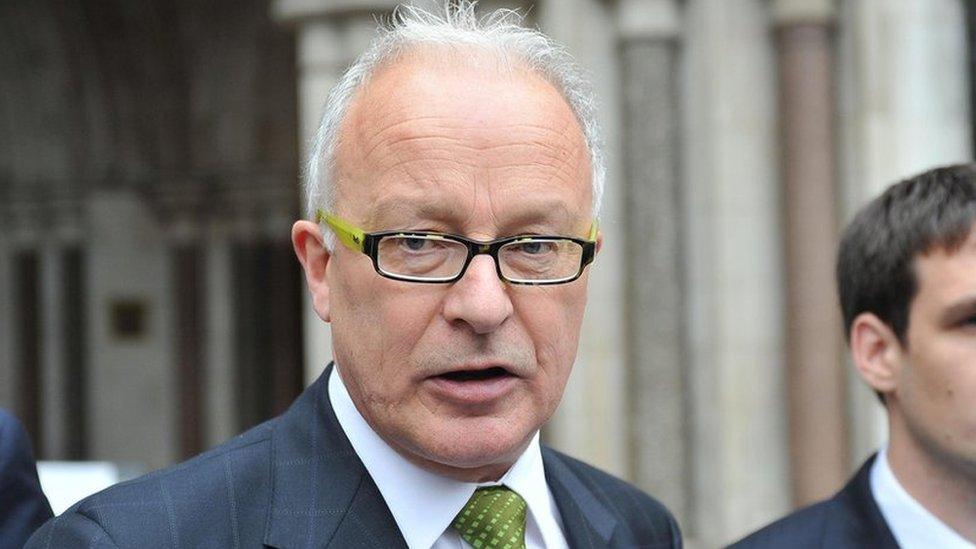Lawyers from Leigh Day cleared of Iraq case misconduct
- Published

Left to right: Anna Crowther, Martyn Day and Sapna Malik were accused of misconduct
Three lawyers accused of improperly pursuing murder and torture claims against British troops in Iraq have been cleared of any wrongdoing.
Martyn Day, co-founder of law firm Leigh Day, and colleagues Sapna Malik and Anna Crowther, were cleared at the Solicitors Disciplinary Tribunal of a series of misconduct charges.
The hearing related to their handling of claims made against the MoD.
Mr Day said the decision allowed them to return to "the work we love".
The hearing followed the £31m Al Sweady public inquiry examining that claims British soldiers tortured and murdered Iraqi detainees taken into custody following the battle of Danny Boy, north of Basra, in 2004.
It concluded that the allegations were "wholly without foundation and entirely the product of deliberate lies, reckless speculation and ingrained hostility".
But it also found that nine Iraqi detainees had been mistreated.
'Human error'
The main tribunal charge concerned Leigh Day's failure to disclose a document identifying the Iraqi detainees as insurgents and members of a militia that had attacked British forces.
Other charges alleged the firm continued to seek damages for its clients when it was improper to do so, and authorised prohibited payments for cases to be referred to it.
Leigh Day had previously acknowledged its failure to disclose the document was a human error, but denied any professional wrongdoing.

Analysis

By Clive Coleman, legal affairs correspondent
This ruling will be a considerable blow to the Solicitors Regulation Authority (SRA) which prosecuted this case. The SRA is funded by the solicitors' profession and members will want to know why millions of pounds of their money was spent in a failed prosecution involving 20 charges of professional misconduct.
In February, the government welcomed the SRA's successful prosecution of the controversial solicitor Phil Shiner who was found guilty of 22 charges of misconduct including dishonesty and a lack of integrity. He was struck off.
His firm, Public Interest Lawyers, which had worked closely with Leigh Day in bringing claims by Iraqis against the Ministry of Defence, closed in August after being stripped of legal aid funding for breaching contractual requirements.
Leigh Day always acknowledged some human error, but denied professional wrongdoing, stressing the difference between the two things. The SRA had to prove misconduct to the criminal standard of beyond a reasonable doubt.
At a pre-trial hearing, the firm suggested the SRA had been leaned on by the government to pursue the case. The SRA categorically denied the suggestion, but there will be some solicitors who believe politics played a role in the case against Leigh Day.

Mr Day and Ms Malik were each cleared of 16 misconduct charges, Ms Crowther was cleared of four, including an allegation of destroying a key document, and the firm was cleared of 11 counts.
Following the 22-day hearing, Solicitors Disciplinary Tribunal panel chairman Simon Tinkler said they had found that none of the allegations made had been proved.
A full judgement is due in August.
In a statement, Mr Day said: "We are pleased that the tribunal has cleared us of all the charges, and confirmed our view that we did not act improperly or dishonestly in these legal claims.
"For nearly 40 years I have battled on behalf of the ordinary man and woman in this country and abroad to ensure they get access to justice not least when they face the might of British multinationals or government.
"I am very pleased that I and my colleagues can now get back to doing the work we love."
A Ministry of Defence spokesman said: "We have noted today's decision and are disappointed that, unlike in the case of Phil Shiner's Public Interest Lawyers, the tribunal has not agreed with the concerns we have raised.
"We will continue to both vigorously defend any opportunistic claims when we believe they are false or exaggerated, and to bring any evidence of wrongdoing to the attention of supervising bodies."
- Published8 May 2017

- Published27 April 2017

- Published24 April 2017

- Published2 February 2017
